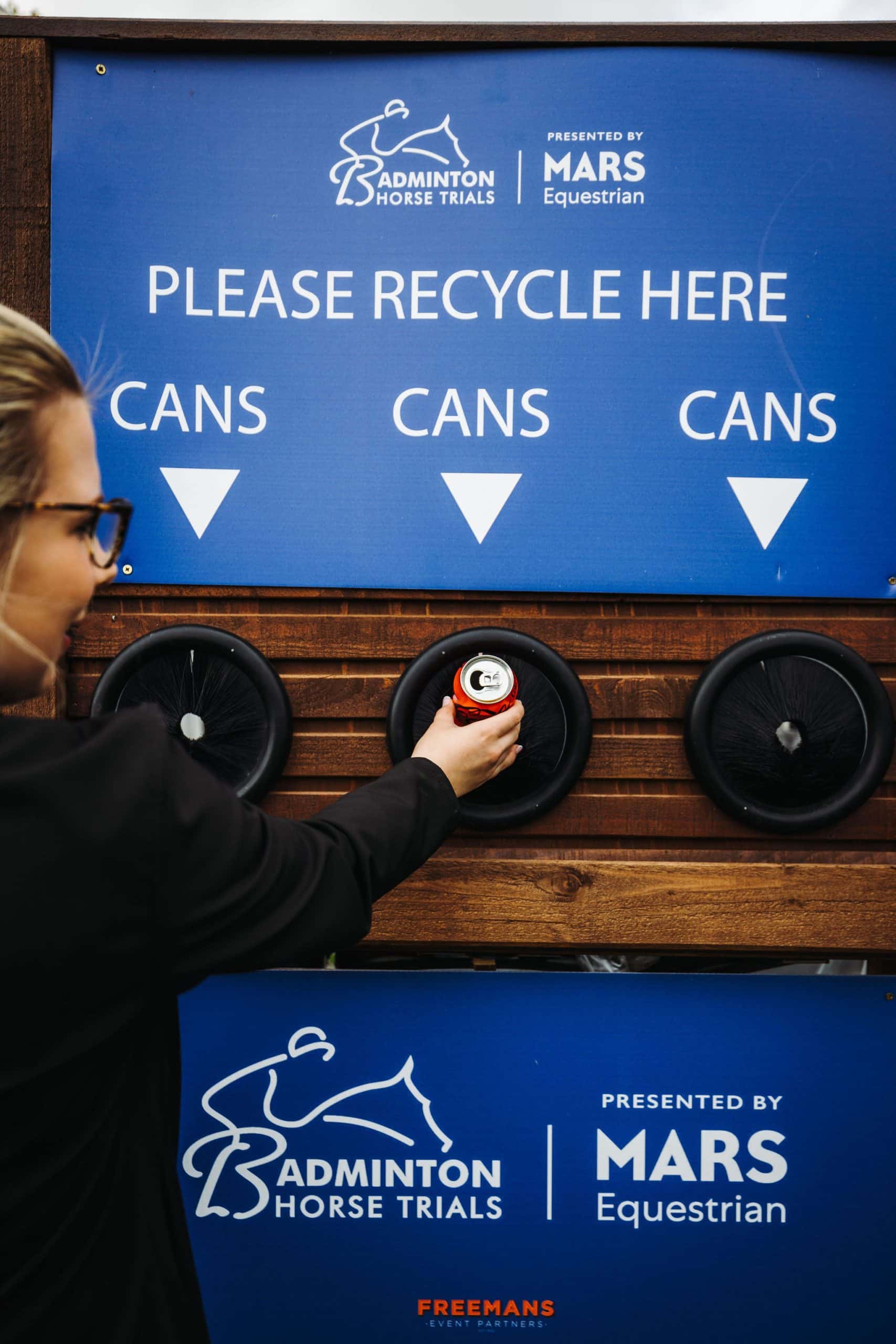
What is reverse vending, and how is it elevating events?
Sustainability is a major priority for stadiums and event spaces. Across the pond in North America, over 50 stadiums are now LEED (Leadership in Energy and Environmental Design) certified, including NBA, NFL and MLB venues, reflecting a widespread commitment to sustainable venue systems. Closer to home, the Tottenham Hotspur Stadium is run on 100% renewable electricity, and the Allianz Stadium has operated under a “Zero waste to landfill policy” for the last 8 years.
With a host of green technologies like solar panels and living walls readily available, venues can effectively reduce their environmental impact – and operational costs. Another technology, reverse vending, is also quickly gaining traction in the events and hospitality industry. But what is it, exactly? And how is it benefiting these venues?
Reverse vending machines are automated systems that accept empty containers (like bottles and cups) and provide something in return, such as a reward or refund. Think of them as the opposite of traditional vending machines: instead of purchasing something, you return an item and receive value in exchange. For stadiums, event spaces, and hospitality venues aiming to minimise waste and elevate the customer experience, reverse vending presents a smart and forward-thinking solution.
How does reverse vending technology work?
Reverse vending machines make use of scanning tech to identify, sort, and process recyclable containers. When customers give back their empty cups or bottles, the machine’s sensors verify the item and its deposit eligibility before storing it for recycling. After the verification, the system then issues a reward to the customer. Simple.
While straightforward for fans or customers, the technology behind these systems requires sophisticated payment processing capabilities. Capabilities that need to handle instant transactions, digital wallet integration, and real-time reward distribution. Reverse vending solutions must seamlessly connect with existing point-of-sale (POS) systems while remaining secure and reliable, even during peak usage periods when thousands of items might be processed within hours.
What are the benefits for events and hospitality?
Beyond the clear environmental benefits, sporting venues and event spaces are quickly learning that reverse vending machines offer multiple operational advantages and revenue opportunities.
- Cost management: The most immediate impact hits the bottom line through reduced waste management and cleanup costs. Large events generate substantial waste volumes, and when you can incentivise customers to handle the first stage of waste sorting, the operational savings add up quickly.
- Customer engagement: Deposit schemes and loyalty rewards create natural touchpoints for customer interaction. Many venues are integrating these systems with existing loyalty programmes, creating a seamless experience that encourages repeat visits while showcasing environmental credentials. It’s genuinely win-win. Customers feel good about their contribution and reward, and venues see improved satisfaction scores and brand perception.
- Revenue opportunities: The financial model works on multiple levels, often in ways that aren’t immediately obvious. Deposit schemes create what’s essentially an interest-free loan. Customers pay upfront deposits that venues hold until containers are returned. Not every customer returns their containers, meaning a percentage of deposits become pure revenue.
Beyond the deposit mechanics, these systems open up new commercial partnerships. Beverage suppliers often contribute to incentive programmes, while sponsors value the positive environmental messaging associated with reverse vending initiatives.
Like all technology upgrades, an upfront investment is required. But the reduction in waste management expenses, coupled with increased customer engagement and potential revenue from deposit schemes, will offset these investments quickly, as well as supporting sustainability credentials.
A green future for events and hospitality
The reality is that venues can no longer afford to ignore sustainability. With mounting pressure from both policymakers and customers, the question isn’t whether to adopt green technologies, but which ones will deliver the best returns. Reverse vending stands out because it tackles multiple challenges at once: waste reduction, customer engagement, and operational efficiency.
The venues making these moves now, backed by payment systems that can handle the complexity and volume these technologies demand, are already reaping today’s rewards while their competitors are still playing catch-up.
If you’d like to discuss how reverse vending can elevate your venue, reach out to one of our payment specialists today.



